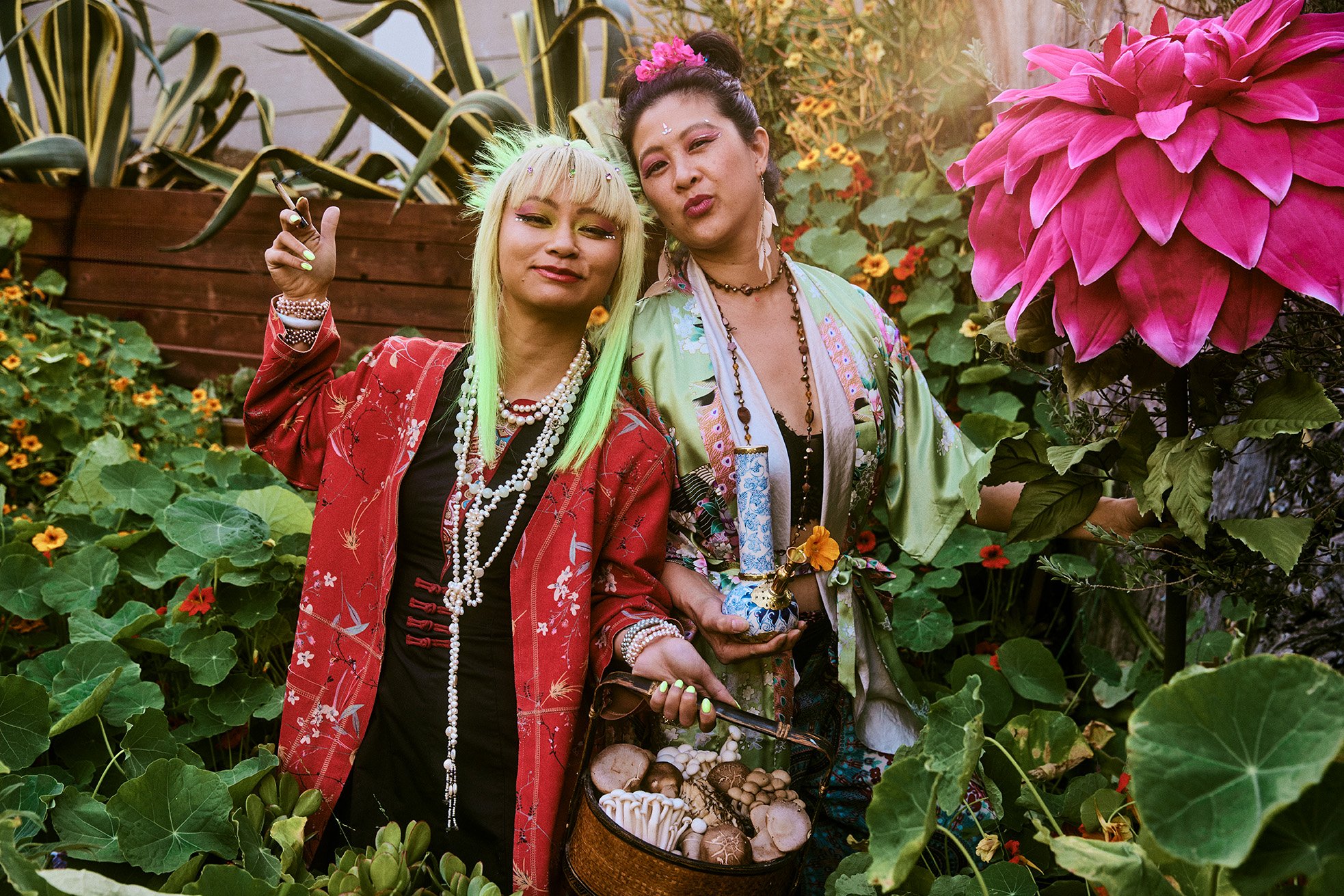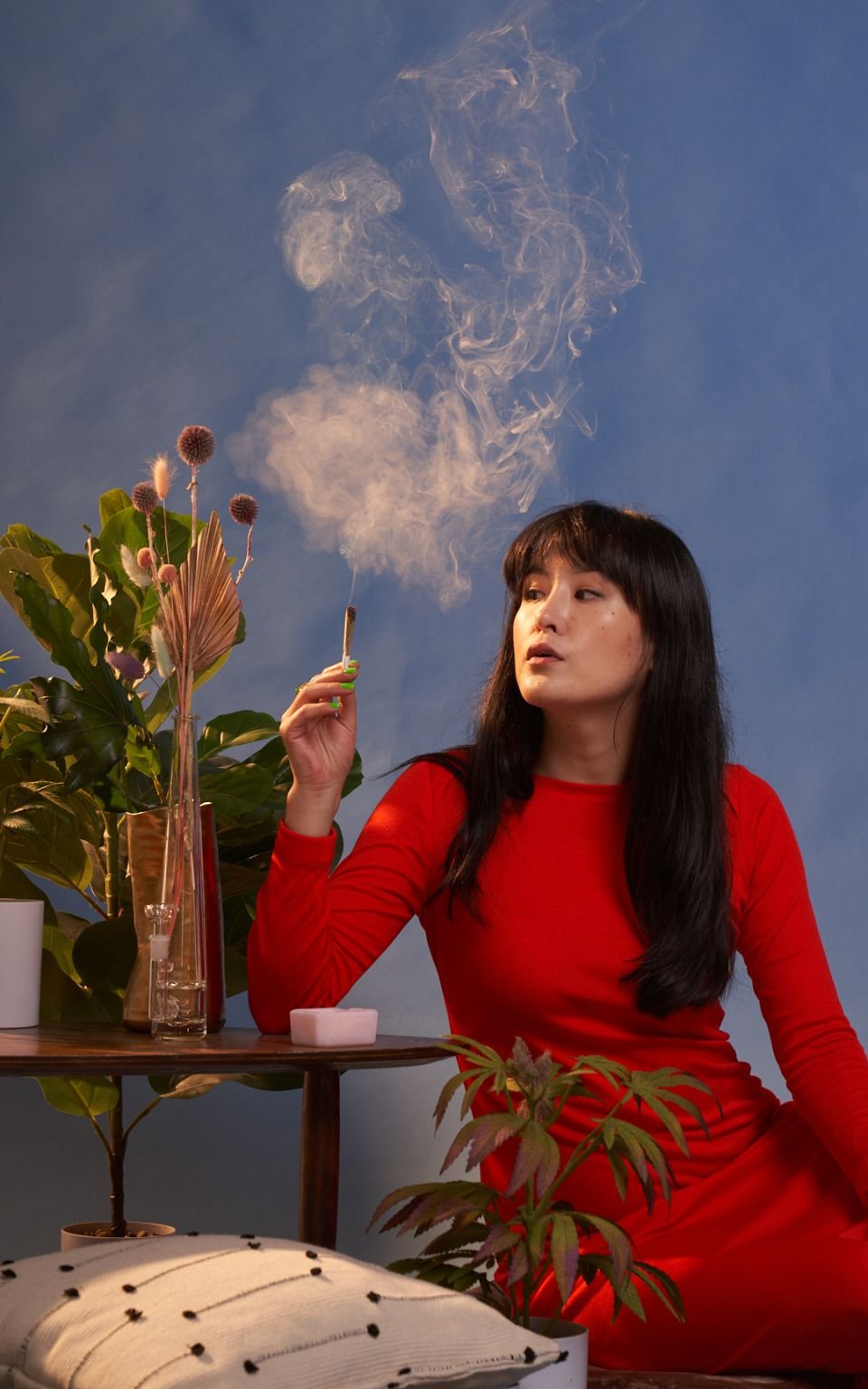
Exploring the Cannabis Goddess of Longevity
Events + Gatherings
Photo by Cherry Jane Studio
Mogu Magu is beyond just a gathering. It’s creating space for people who occupy the in-between. Those who understand the feeling of not quite fitting in, and are pushing the cultural narrative forward into the unknown. We’re immigrants.
Each event leaves us feeling more seen and more connected with each other. An evening of storytelling creates meaningful connections, lasting memories, new narratives, and collective healing.
Thank you for showing up and being a part of the magic. Mogu Magu is special because everyone brings something to the table. Whether it’s a tea ceremony, surprise performance, secret treats, or simply your curiosity. We thrive when we collaborate together as a collective.
Welcome to Mogu Magu.
🪄✨ Wendy & Christina
Lauren Yoshiko, Sticky Bits
“Inspired by Magu, a hemp goddess shown in ancient art across multiple Asian countries, this contemporary exploration of cannabis in Asian communities aims to open up conversations and awareness of the contradictory challenges for those still burdened with cultural stigmas but interested in this plant.”
Who is Magu?
A legendary female Daoist deity (仙) symbolizing longevity and immortality, Magu (麻姑) is a fusion of the Chinese words: “ma,” meaning “cannabis” or “hemp,” and “gu” which denotes “aunt” or “maid.”
Reverence for Magu extends beyond China where she is worshipped in Japan, Korea and Vietnam, known as Mago, Mako, and Mạc Đồng or Mạc Dực respectively. While her prominence shines brightest in China, her influence echoes through the ages, evidenced by the presence of dedicated Shinto and Buddhist shrines in Japan. She’s often depicted carrying hemp in her basket and surrounded by symbols of longevity such as peaches, lingzhi fungus, or lotus flowers.
History of Magu
The earliest traces of Magu are found in the ancient text“Shenxian zhuan,” a biographical collection of immortals and Chinese Gods. Believed to be authored by the esteemed Daoist scholar Ge Hong (283-343), the stories shed light on Magu’s profound significance and how hemp was used in ancient Asia. Although various narratives regarding her origins abound, they unanimously underscore her pivotal role as a healer, alchemist, and guardian of women.
Cannabis and Magu
Cannabis use in rituals has been mentioned in Daoist texts since the 4th century, which aligns with Magu’s esteemed position within the Daoist pantheon. Notably, Magu is a goddess of Mount Tai, China’s famous sacred mountain revered as a holy site that connects heaven and earth. On this mountain cannabis once grew in abundance, and this is where Magu was said to brew the elixir of life.
As one of the oldest cultivated plants in the world that originated in Asia, hemp was primarily utilized for its fiber as textiles. While silk was a luxury reserved for the wealthy, hemp was accessible to the masses and used to make paper. The seeds of the cannabis plant have been used in Chinese medicine for over 1,800 years, showcasing its long-standing significance in the culture.
Pictured: Magu, Goddess of Longevity, Ming dynasty Kesi woven textile (Smithsonian)


